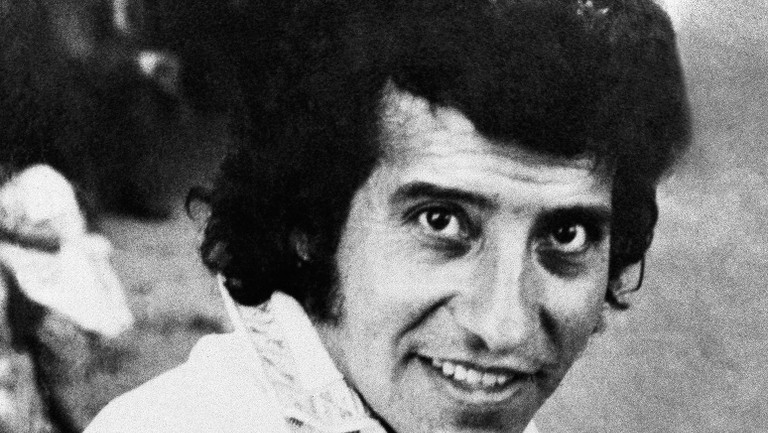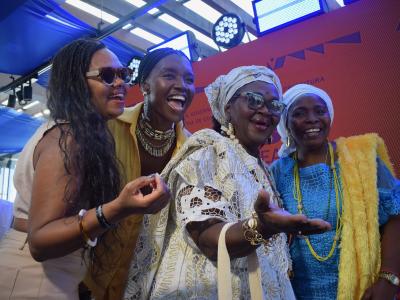September is without doubt the most important month for Chileans: in less than three weeks spring brings a jump in temperature from 15 to 25 degrees, the 1973 military coup d’état is commemorated and the national holiday of the 18th is celebrated. The country, in need of celebration, is filled with a festive atmosphere during the preceding days, with companies and institutions organizing barbecues and traditional games – Cueca or Cumbia playing in the background.
However, the pandemic, and the plebiscite to reform the constitution (planned for 25 October), have changed the atmosphere. Despite 15,823 deaths (including ‘suspected cases’) the government has indicated that there has been a ‘slight improvement’.
Fondéate en Casa
As a result, several neighbourhoods in the upper district of Santiago, such as Providencia, Vitacura or Las Condes, are already opening restaurants and non-essential shops, as well as allowing social gatherings of up to 50 people outdoors and five people indoors. These measures are part of Phase 3 (the ‘preparation phase’) of the step-by-step plan, which Piñera intends to follow to end the lock down and repair the economy.
Therefore, while the streets are filled with people enjoying the sun and the restaurants and shops are open, a plan has been proposed to celebrate the national holiday, called ‘Fondéate en Casa’ (a play on the words ‘fondas’ [improvised street bars where drinks, empanadas and meat are sold] and the Chilean phrase, ‘fondearse’ [to hide or shut oneself away]).
The Health Minister, Enrique Paris, had said on Sunday that five people could meet together indoors. Then on Monday, Jaime Bellolio, Minister Secretary General of the Government, said this was: ‘Five people, in addition to those living together in the same house.’
This was after a meeting of the crisis committee at ‘La Moneda’ (Chile’s presidential palace) to try to resolve the confusion – bearing in mind the rapid increase in infections in the south of the country and the Chilean custom of visiting relatives during these celebrations. Indeed, according to the Fifth Report on Covid in Chile, by the University of Chile, Universidad Católica and University of Concepción, infections are on the rise in the south of the country, especially in the regions of Maule, Biobío and Magallanes.
The Right's evoking of Victor Jara
Recently , the Independent Democratic Union (UDI) (a right-wing party, with roots in the Pinochet regime) controversially sang verses from the song ‘The right to live in peace’ by Víctor Jara as part of its campaign to reject constitutional change.
The song, which is emblematic for its solidarity with the Vietcong and for combining rock with ‘New Chilean Song’ (a 1960’s and 70’s, Chilean political folk movement) was revived during the social unrest which began in October of last year.
To this obvious provocation by the UDI, in using this song, the Victor Jara Foundation responded that same day: ‘Last 18 October, the Chilean people rose up to demand justice and dignity. The state’s response was a violent crackdown, which left dozens dead and hundreds with eye injuries.
In the midst of this, Víctor Jara’s song could be heard coming from thousands of homes, streets and squares across the country. The song demands the right to live in peace (denied to Victor Jara) – this is the meaning and sentiment with which he composed and sang it – today it is known all over the world. Anyone using this song is answerable for their intentions – the people will be the judge of this’.
The Police, Bodyguards for the Opponents of Change
This polarization of the country is nothing new, however. During a big demonstration last weekend the police acted as bodyguards for the opposition (mostly right-wing and extremist Pinochet supporters carrying ‘Trump 2020’ flags). At the same time, the police used water canons on nursing technicians, who were protesting about the government’s indifference to their vital work to contain the pandemic.
Despite this, surveys such as ‘Data Influye’ (submitted on August 28) indicate that 78 per cent are in favour of constitutional change, while 13 per cent are against it, although ‘Criteria Research’ (a government study) has those in favour on 74 per cent. In addition, the option to have a ‘Constituent Assembly’ (a commission made up entirely of elected members of the public) was supported by 64 per cent, as against 29 per cent who wanted a ‘Mixed Commission’ (a commission made up equally of members of congress and members of the public). These last two options will also be put to the vote in the Plebiscite.
Daniel Chernillo, sociologist and philosopher of the Adolfo Ibáñez University, considers that: ‘Chileans are experiencing a crisis of confidence. To some extent this crisis of confidence is global, because institutions such as the system of political democracy, the media, and market economy are being questioned everywhere. In Chile, this crisis of confidence has come about because the idea that Chile had developed into a completely different country during the last three decades, has been completely discredited.’
For him, however different Chile is in 2020 compared to 1990, some of these transformations rest on very weak foundations: there is still economic and territorial inequality; a political system which has never been properly established; armed forces and police who make their own decisions and have serious problems of corruption; and pending ethnic conflicts.
‘That is perhaps why the debate about constitutional reform has taken off. On its own, the Constitution cannot change or improve any of these issues. It does however offer the possibility of setting them out in a serious, truthful and comprehensive way – for the first time in 100 years’.
This article was published by Pagina 12 on 11 September. You can read the original (in Spanish) here. It was translated for LAB by Fuschia Fowke for www.lab.org.uk















